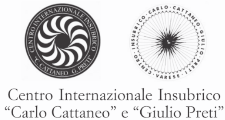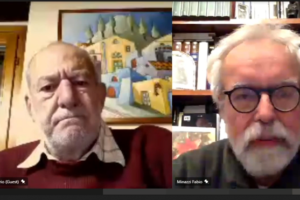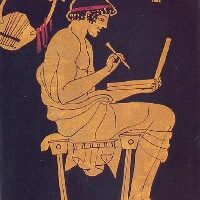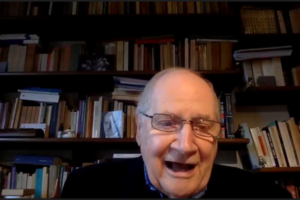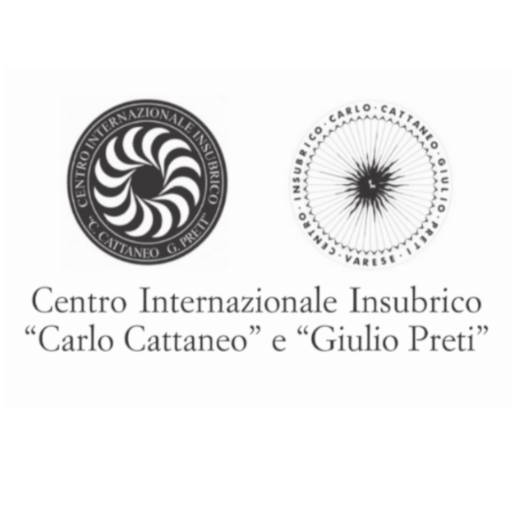
History and philosophy of science: historiographical traditions and epistemological perspectives
History and philosophy of science:
historiographical traditions and epistemological perspectives – Short Version
Science and philosophy are closely linked fields, and the common ground on which both are deployed and contextualized is that of history. In fact, the historical perspective interacts with the theoretical awareness of science and philosophy, and can be considered as an essential part of these disciplines. The relation between the history and the philosophy of science, therefore, does not affect their reciprocal autonomy: rather, it reveals – in accordance with Thomas Kuhn’s teachings – the incresingly shared awareness that these disciplines are inseparable, in spite their theoretical and methodological differences.
Undoubtedly, the refinement of historical methods in the past decades has contributed immensely to the advancement of knowledge (just think of philological analysis, or the social history and sociology of science and technology; or consider the re-evalutation of the role played by scientific practices and their increasingly complex relationship with theoretical models; or the tormented, though fertile, epistemological tension between reductionist and pluralistic approaches). However, this very refinement has also caused frequent – often, extreme – polarization among different stances. Given the deterioration of public trust in science and the growing delegitimization of scientific expertise which has been triggered by the recent pandemic, interdisciplinary dialogue is now more necessary than ever: this action is needed not to defend the outdated idea of an infallible and impersonal science, but to foster positive interaction between the “inherent uncertainty” of science and the needs and expectations of society.
This conference series has two related aims: 1) to compare different and well-established traditions in the history and philosophy of science, and 2) to develop an informational and educational resource on the state-of-the-art of the history and philosophy of science, a resource to be shared and made available to scholars, students, and the general public. In order to encourage dialogue and active participation from the audience, at each meeting three guests focusing on a common subject will present and discuss their different approaches.
A volume of proceedings will be published after the conference series. The meetings will start in Fall 2021 and will take place on a regular basis.
History and philosophy of science:
historical traditions and epistemological perspectives – Long Version
Science and philosophy are closely linked fields. Science stems from philosophy, from which it gains independence as it defines its own scopes, methods, and languages. Such autonomy is now an established fact: this fact, however, does not detract from the still-existing mutual influences between science and philosophy – influences that make any “scientifically unaware” philosophy groundless and vain, and any “philosophically unaware” science dogmatic, theoretically limited, and devoid of critical thought.
The common ground on which both science and philosophy are deployed is that of history, as the very formal structures of reason exist and operate within historical contexts. Only by clarifying and reconstructing historically the relationships between science, philosophy, and cultural and social contexts is it possible to gain an in-depth understanding of authors, theories, and of the different schools of thought. Moreover, the historical perspective interacts with the theoretical awareness of science and philosophy and can be considered as an essential part of these disciplines.
The main task and challenge for the History of science, therefore, is to understand and explain scientific complexity in light of its relationship with philosophy and in light of the many different cultural and social contexts, sources, methods, theoretical and practical traditions which influenced (and were influenced by) its development. Exploring this complexity does not allow for simplifications (such as, for example, the overuse of sociological tools): rather, this effort needs to be constantly supported by philology, textual criticism, and erudition, in order to perform an in-depth and exhaustive study of primary sources. At the same time, however, the philological and textual approaches need to be complemented with an equally crucial (and heuristically aware) critical study of the many conceptual traditions underlying different authors, schools, and research programs. Given this “historical complexity,” therefore, it is essential for a researcher to have access to a rich and diverse “toolbox” that allows to explore the connections between historical, scientific, and philosophical aspects.
In the history and philosophy of science, there is a constant tension between the constructivist (or externalist) and the internalist approach: while the former understands and explains scientific knowledge in light of cultural, social, and economic influences in a given context, the latter claims science to be distinct and independent from external factors. In the past, notable constructivist-externalist scholars were Christopher Hill, Joseph Needham, and Thomas Kuhn, whereas internalist authors included – among the others – Alexandre Koyré, Rupert Hall, and Imre Lakatos. Epistemologically, these different perspectives produced different theoretical approaches driven by different philosophical views (i.e. logical empiricism, falsificationism, neopositivism, conventionalism, objectivism). Although in the past years many different research groups and historiographical and epistemological traditions have worked to overcome these contrasts through the development of very complex and articulated models, the problem posed by partial and superficially sociological, even ideological, approaches (like the constructivist view, which is dominant in Sciences and Technology Studies) is still severe. Thus, from an epistemological point of view, it will be necessary to analyze and discuss a widespread trend in scholarship: the opinion according to which it is impossible to devise any comprehensive philosophy of science, which therefore should be replaced with partial, limited, and narrowly specialized interpretations.
This online event is promoted and hosted by the CNR Institute for the History of Science and Philosophy in Modern Age (ISPF Naples-Milan) and the International Insubrian Center “Carlo Cattaneo” and “Giulio Preti” (CII, University of Insubria-Varese). The conference series has two related aims: 1) to compare different and well-established traditions in the history and philosophy of science, and 2) to develop an informational and educational resource on the state-of-the-art of the history and philosophy of science, a resource to be shared and made available to scholars, students, and the general public. In order to encourage dialogue and active participation from the audience, at each meeting three guests focusing on a common subject will present and discuss their different approaches.
A volume of proceedings will be published after the conference series. The meetings will start in Fall 2021 and will take place on a regular basis.
Useful Links:
